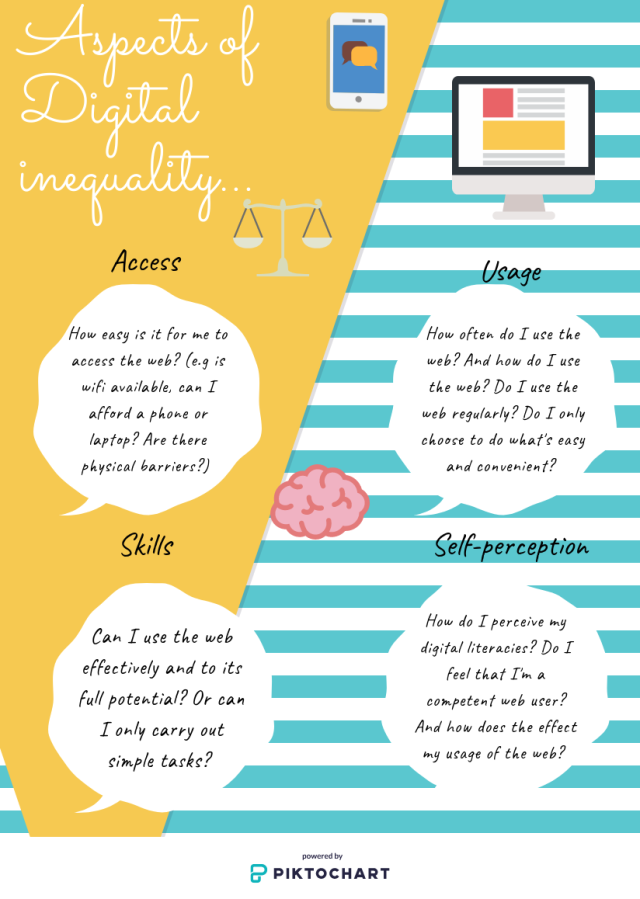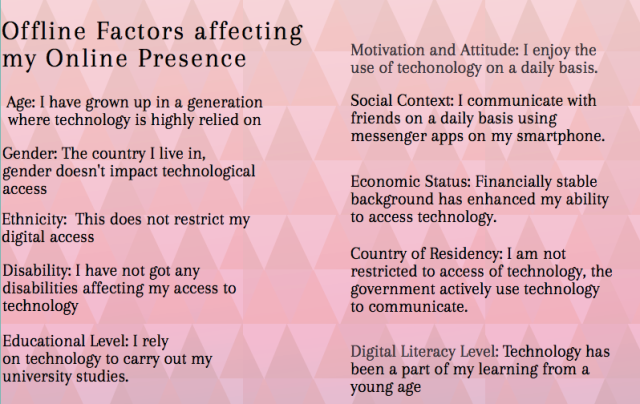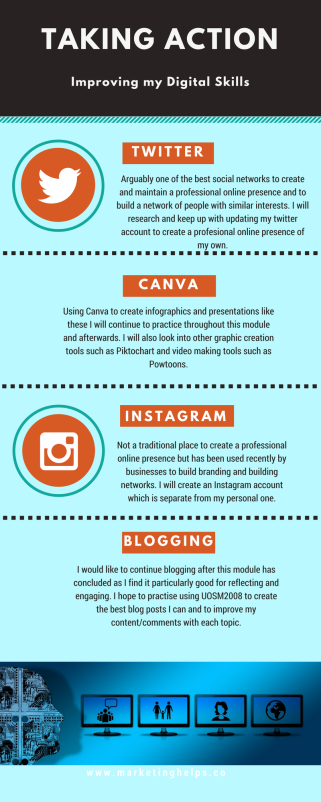
Topic 1- Digital Differences:
Today we see a new inequality, referred to as ‘Digital Difference’ (Robinson et al, 2015). Watch my video below to learn more! (created by Boyle on Biteable, 2018).
Digital Differences include many aspects…
Aspects of Digital difference (Robinson et al, 2015). Created by Boyle on Piktochart (2018)
Although it’s important not to generalize certain populations, research has revealed certain patterns in how people engage with the web…
Patterns in Digital Differences.
Continue reading →













